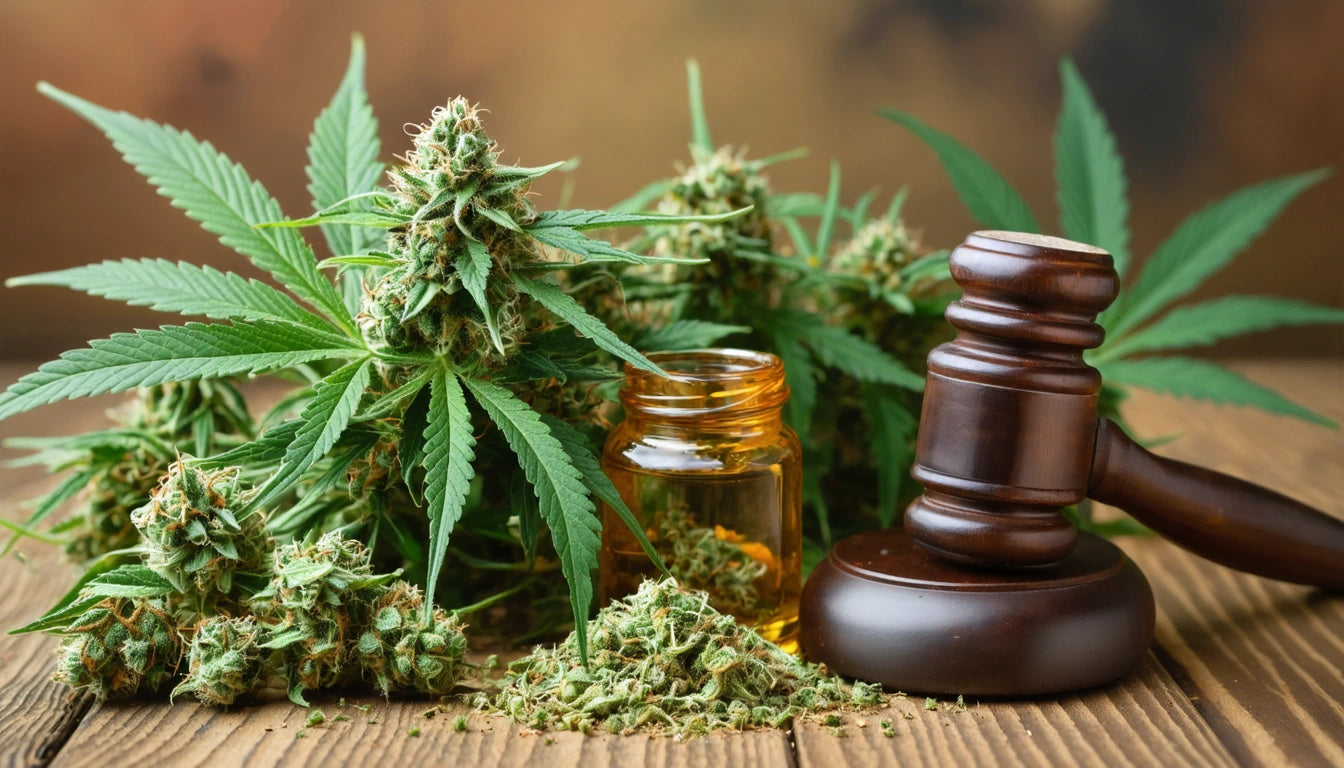Table of Contents
- Normal Cannabis Reproduction: Male and Female Dynamics
- Female Plants Producing Seeds: Causes and Explanations
- Identifying Seed Production in Female Cannabis Plants
- Feminized Seeds: Common Questions Answered
- Preventing Unwanted Seed Production in Cannabis Grows
- Utilizing Unexpected Seeds: Options for Growers
Understanding Seed Production in Female Cannabis Plants: Causes and FAQs
For cannabis growers, few discoveries are more frustrating than finding seeds in what should be seedless female plants. This phenomenon raises many questions about plant biology, growing conditions, and genetics. Whether you're wondering "can a female plant produce seeds without a male" or "why is my female plant producing seeds," this guide explores the causes and solutions to this common cultivation challenge.
Normal Cannabis Reproduction: Male and Female Dynamics
Cannabis is typically a dioecious plant, meaning it produces separate male and female plants. Under normal circumstances, female plants develop flowers (buds) while males produce pollen sacs. When pollen from male plants reaches the female flowers, fertilization occurs, and seeds develop.
Understanding male and female plant differences is crucial for any cannabis grower. In traditional cannabis reproduction, males produce pollen that fertilizes female flowers, resulting in seed production. This is how cannabis naturally reproduces in the wild, answering the basic question of "do seeds reproduce" with a definitive yes.
Female Plants Producing Seeds: Causes and Explanations
Hermaphroditism: When Plants Develop Both Sexes
The most common reason a female cannabis plant produces seeds without an apparent male presence is hermaphroditism. A hermaphrodite plant develops both male and female reproductive organs, allowing it to self-pollinate. This typically occurs due to:
- Environmental stress (temperature fluctuations, light leaks, nutrient issues)
- Physical damage to the plant
- Genetic predisposition (some strains are more prone to hermaphroditism)
- Chemical stress from pesticides or growth regulators
When asking "can female pot plants produce seeds," the answer is yes, but usually only when they develop male characteristics due to these stressors.
Undetected Males or Pollen Contamination
Sometimes, the cause is simpler: pollen from an undetected male plant or from a neighboring grow. Cannabis pollen is extremely light and can travel significant distances on air currents. Even a single male plant can pollinate hundreds of females within a large radius.
Growers who precisely monitor their plants should use accurate digital scales to measure plant growth patterns, as subtle weight changes in branches can sometimes indicate early pollen sac development before visual identification is possible.
Identifying Seed Production in Female Cannabis Plants
Early detection of seed production can help mitigate the problem. Look for these signs:
- Swollen calyxes with hard centers
- Small, round protrusions developing within the buds
- Pollen sacs or "bananas" (stamen) growing from female flowers
- Reduced resin production as the plant diverts energy to seed development
Regular inspection of your plants, particularly in the flowering stage, is essential for catching these issues early.
Feminized Seeds: Common Questions Answered
Do Feminized Plants Produce Seeds?
A common question is "do feminized plants produce seeds" or "can you get seeds from feminized plants." Properly feminized plants should not produce seeds under normal conditions because they lack male chromosomes. However, even feminized plants can become hermaphroditic under stress.
As explained in this guide to feminized cannabis seeds, these specially bred seeds typically produce only female plants, significantly reducing the risk of unwanted pollination.
How Long Do Feminized Seeds Take to Flower?
For those wondering "how long does feminized seeds take to flower," the timeline is similar to regular female cannabis plants. Typically, the flowering period begins when the light cycle changes to 12 hours of light and 12 hours of darkness. From there:
- Indica-dominant strains: 7-9 weeks of flowering
- Sativa-dominant strains: 10-14 weeks of flowering
- Hybrid strains: 8-12 weeks, depending on the specific genetics
The total time from germination to harvest for feminized seeds typically ranges from 3-5 months, depending on the strain and growing conditions.
Preventing Unwanted Seed Production in Cannabis Grows
To prevent unwanted seed production in your female plants:
- Carefully inspect all plants regularly for signs of hermaphroditism
- Maintain stable growing conditions (temperature, humidity, light schedule)
- Isolate any plants showing male characteristics immediately
- Choose genetics with stable feminized traits from reputable sources as outlined in this guide to choosing feminized seeds
- Avoid high-stress training techniques with stress-sensitive strains
- Ensure complete darkness during the night cycle for flowering plants
Utilizing Unexpected Seeds: Options for Growers
If you do find seeds in your female plants, you have several options:
Seeds from hermaphrodite plants will likely carry the hermaphroditic trait, making them less desirable for future grows. However, they can still be viable and might produce female plants. If you're asking "will a male plant produce female seeds," the answer is complicated. A true male plant produces regular seeds (roughly 50% male/50% female), while hermaphrodite plants can produce seeds with higher female ratios but also with hermaphroditic tendencies.
For those wondering "can you plant a date seed" or other non-cannabis seeds using similar techniques, the principles of germination are similar across plant species, though the specific requirements vary. Cannabis seeds specifically require warm, moist conditions to germinate successfully.
Understanding how to create feminized seeds can help turn an unwanted seeding situation into an opportunity for genetic preservation or breeding.
By understanding the biology behind seed production in female cannabis plants, growers can better prevent unwanted seeding and maintain the quality and potency of their harvests. When female plants produce seeds unexpectedly, it's almost always due to either stress-induced hermaphroditism or undetected pollen contamination, both of which can be addressed with proper growing practices and vigilant plant monitoring.











Leave a comment
All comments are moderated before being published.
This site is protected by hCaptcha and the hCaptcha Privacy Policy and Terms of Service apply.